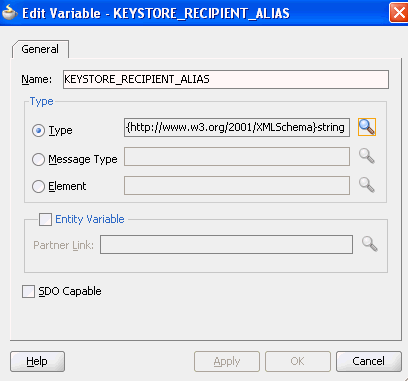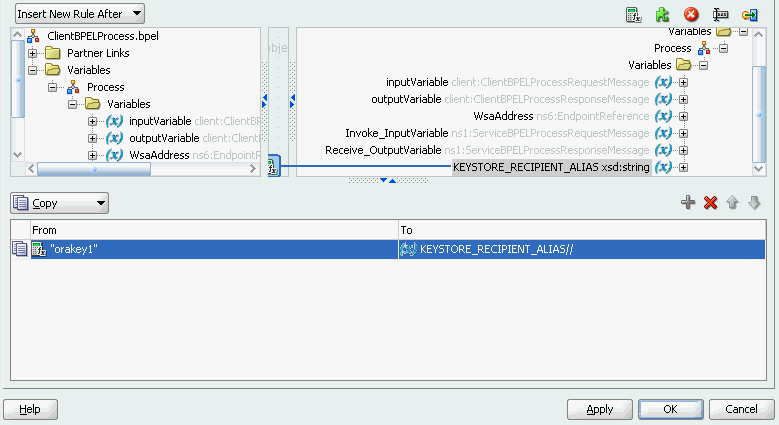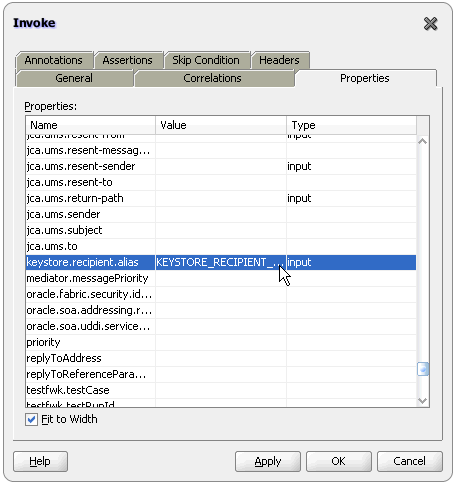Overriding Security Certificates when Invoking Dynamic Partner Links
You can interact with multiple web services using dynamic partner links. This interaction may involve using message protection policies that require different security certificates for encrypting the message. These certificates may be different for each web service. You can specify a keystore recipient alias value to override the security certificate in the WSDL file of the web service.
To override security certificates when invoking partner links:
For more information about normalized message properties, see Propagating Normalized Message Properties Through Message Headers.


